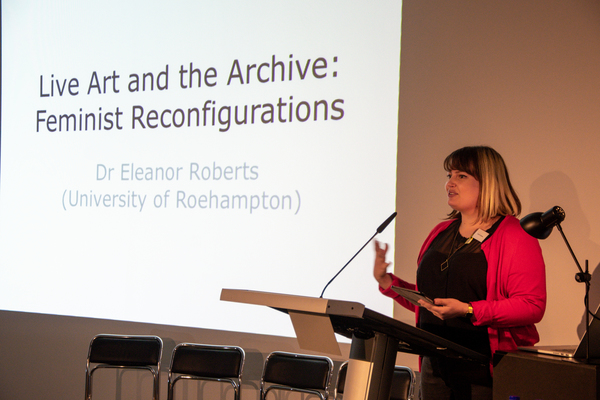Live Art and the Archive: Feminist Reconfigurations
(02.11.2018)
https://hdl.handle.net/20.500.11806/qr/ade_Roberts

Performance and Live Art practices have held uneasy relationships to traditional modes of archiving and historisation due to many factors – including, in many cases, active resistance to documentation and institutionalisation. While women and feminist artists, for example, have enacted important critiques of institutions and institutional processes of containment, many practices remain marginalised, invisible, or unmapped. This paper proposes feminist approaches to addressing some of the questions and tensions of the archival encountering of performance. This includes:
• issues of visibility and representation in historical narration;
• how to sustain a multiplicity of possible afterlives in resistance to possible containing effects – such as those of tokenistic and/or iconographic representation;
• and how to devise new ways of challenging monolithic approaches to the archive with oral and other types of histories, and new acts of creation.
At the core of these questions is the issue of intergenerational engagement, and approaches which are actively resistant to historical compartmentalisation and predetermined generational boundaries. This paper offers provocations that seek to disrupt more conventional notions of succession, and displacement of artists and practices across time. The narrative is therefore anchored by readings of specific artists’ works from pre/histories of Live Art in the UK since the 1970s, before spreading into broader reflections on methods and approaches to Live Art and the archive modelled in recent collaborations with Live Art Development Agency (London, UK).

place: Kunstmuseum Bern

| Key: | QHSKRHEK |
| ShortTitle: | Live Art und das Archiv: Feministische Rekonfigurationen |
| DateModified: | 2021-10-13T10:39:59Z |
| Language: | Englisch |
| DateAdded: | 2019-04-14T10:28:01Z |
| Rights: | https://creativecommons.org/licenses/by/4.0/ |






